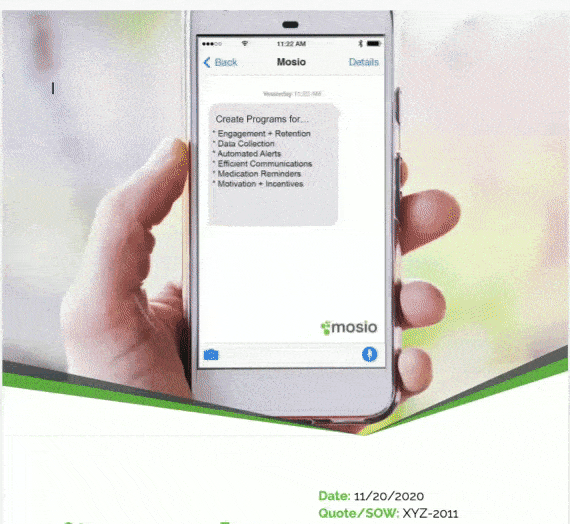REDCap survey distribution tools are crucial for ensuring effective data collection.
Distributing these surveys effectively to ensure high response rates and participant engagement remains a critical challenge. One effective solution to this challenge is leveraging survey distribution tools, specifically Mosio, to streamline and enhance the process.
Are you…
- Struggling to efficiently distribute surveys to participants using REDCap?
- Finding it challenging to reach your target audience and collect responses effectively?
- Looking to streamline the survey distribution process within the REDCap platform to ensure data accuracy and completeness?
This article is for:
- Researchers and data managers using REDCap for data collection and survey administration.
- Academic researchers looking to efficiently distribute surveys to study participants.
- Data coordinators and administrators responsible for managing survey projects within the REDCap platform.
What are REDCap Survey Distribution Tools?
REDCap survey distribution tools are specialized platforms and services designed to facilitate the dissemination of surveys created within the REDCap system. These tools help researchers efficiently reach their target audience, manage survey invitations and reminders, and collect responses. They can integrate various communication channels such as email, SMS, and social media to maximize outreach and participant engagement.
Why Do Clinical Teams Need REDCap Survey Distribution Tools?
Maximizing Response Rates
Clinical teams depend on high response rates to ensure the validity and reliability of their research data. When surveys are distributed through traditional methods such as email, response rates can often be disappointingly low due to participants overlooking or ignoring the emails. Survey distribution tools like Mosio leverage more immediate and personal channels like SMS to capture participants’ attention effectively.
Reaching out to participants through their preferred communication medium and sending timely reminders can significantly increase the likelihood that participants will complete the surveys, ensuring robust and comprehensive data collection.
Streamlining Communication
Manually coordinating survey distribution is not only time-consuming but also prone to human error. This manual approach can lead to inconsistent communication and missed follow-up opportunities, which can adversely affect participant engagement and data quality. Survey distribution tools automate this entire process, ensuring that invitations and reminders are sent out consistently and on schedule.
This automation allows clinical teams to focus on more critical aspects of their research while ensuring that all potential participants are systematically contacted and reminded, thereby optimizing the survey distribution process.
Improving Participant Experience
The participant experience is crucial in research studies, as a positive experience can lead to higher engagement and better data quality. Survey distribution tools enhance this experience by using preferred communication channels and personalizing the messages.
Participants are more likely to engage with surveys that respect their communication preferences and provide a sense of personalization and relevance. Tailoring messages and sending them at optimal times can ensure that participants feel valued and considered, which encourages them to stay engaged and complete the surveys.
Ensuring Data Integrity
Human error is a significant risk in data collection, especially when handling large volumes of survey responses. Manually managing survey distribution and data collection increases the chances of mistakes, such as incorrect data entries or missed responses.
Automated survey distribution tools minimize these risks by systematically handling the entire process, from sending out the surveys to collecting responses and integrating the data into the REDCap system. This automation not only saves time but also ensures that the data collected is accurate, complete, and ready for analysis, thus maintaining the integrity of the research data.
What is Mosio?
Mosio is a platform designed to facilitate automated and interactive text message programs, making it an ideal companion for REDCap survey distribution. Here are some key benefits of using Mosio:
Boost Participant Engagement
Mosio’s text messaging system reaches participants through SMS, their preferred communication channel. This personal approach significantly increases participant engagement, resulting in higher response rates than traditional email.
Automate The Workflow
With Mosio, survey distribution and reminder messages are automated, lightening the manual workload and ensuring timely follow-ups. Automated reminders keep participants engaged, helping complete data collection on schedule.
Tailored Messaging
Mosio’s SMS channels can be customized, allowing researchers to craft communication strategies tailored to their study’s needs. This includes personalized messages, branded communication, and optimal message scheduling.
Real-Time Data Collection
Mosio’s interactive SMS platform enables real-time data collection and feedback. Participants can respond to surveys directly via text, making the process more convenient and increasing immediate response rates.
Expansive Reach & Accessibility
Text messaging ensures surveys reach participants regardless of internet access, making it an inclusive option. This is particularly useful for studies involving diverse populations or areas with limited internet connectivity.
Security & Compliance
Designed with compliance and security in mind, Mosio adheres to industry standards and regulations. This ensures sensitive data collected through surveys is handled securely, maintaining participant confidentiality and trust.
Final Thoughts
Researchers can integrate Mosio with REDCap for survey distribution to significantly enhance participant engagement, streamline communication, and improve data collection efficiency. Leveraging Mosio’s automated and interactive SMS platform addresses common challenges in survey distribution, leading to more effective research outcomes.







